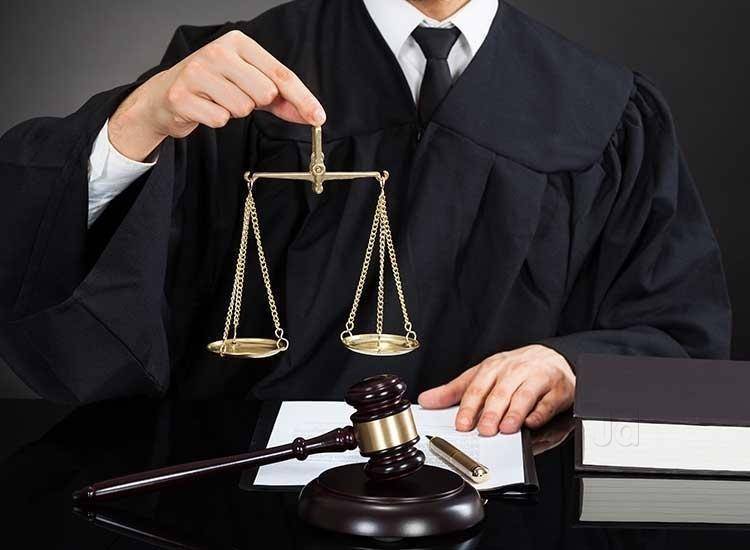
GAG LAWYERS -
GROVER & GROVER ADVOCATES

GAG LAWYERS -
GROVER & GROVER ADVOCATES

Corporate Lawyer, Corporate law is a branch of law that deals with the formation, operation, and dissolution of corporations. It is the set of rules and regulations that govern the activities of corporations, including their rights and liabilities. Corporate law includes areas such as company formation, corporate governance, shareholder rights, mergers and acquisitions, corporate finance, intellectual property protection, bankruptcy laws, and taxation. Corporate law also provides guidance on how to manage the day-to-day operations of a corporation in compliance with applicable laws and regulations. Corporate law is, in large part, the body of law and regulation governing corporations in all their forms. Many countries have legislation that directly or indirectly affects corporate entities and activities, such as securities regulations or bankruptcy rules.
Mostly, national laws provide a general framework for conducting business within a country; they also often define limits on what forms of legal entity may be used by private entities within the country. Most often, these are limited to companies limited by shares (i.e., corporations), partnerships, and sole proprietorships (i.e., unincorporated businesses), although some countries do allow other forms.
Corporate law also provides guidance on how to manage the day-to-day operations of a corporation in compliance with applicable laws and regulations. Corporate law is, in large part, the body of law and regulation governing corporations in all their forms. Many countries have legislation that directly or indirectly affects corporate entities and activities, such as securities regulations or bankruptcy rules.
Mostly, national laws provide a general framework for conducting business within a country; they also often define limits on what forms of legal entity may be used by private entities within the country. Most often, these are limited to companies limited by shares (i.e., corporations) or partnerships. Many countries have national tax laws for corporate entities, which usually provide for a set of tax rates that apply to different types of income and activities.
This may also include rules on how foreign income is taxed and disclosed in the financial statements of the country’s residents. International treaties cover a wide range of topics related to corporate law. These treaties define what constitutes a company, the rights and duties associated with companies, and enforceable legal obligations between countries, such as taxes or exchange controls.

The Companies Act 2013 is a major piece of legislation governing the incorporation, operation, and regulation of companies in India. It is a comprehensive law that regulates the registration, functioning, and management of companies in India. The Act provides for the formation and regulation of various types of companies, such as public limited companies, private limited companies, one-person companies (OPCs), small companies, producer companies, foreign companies, and charitable organisations. It also covers aspects like corporate social responsibility (CSR) compliance, related party transactions (RPTs), mergers and acquisitions (M&As), winding up, and dissolution, among others.
The Companies Act 2013 seeks to ensure greater transparency in corporate governance by laying down stringent rules for disclosure requirements by listed entities, mandatory auditor rotation, and such disclosures to be made in the company’s annual report. As per Section 212 of the Act, every company is required to publish a summary of its financial statements on its website. The Companies Act 2013 came into force on January 1, 2014. It replaces the Companies Act, 1956.
Companies are formed by registration with the Registrar of Companies under this act or by obtaining an exemption for certain limited companies and foreign companies from registration with the Registrar, which is granted by passing an order under this act. The Companies (Amendment) Act, 2016, introduced changes in how Indian companies are formed so as to bring in: simplified procedures for the formation of companies; elimination of time restrictions on registration; enhancements to the provisions in the Act relating to holding companies, subsidiaries, and holding company subsidiaries. Additionally, it allows a company incorporated outside India with a subsidiary in India to be treated as a domestic company under certain provisions of this act.

Companies come in all shapes and sizes, and each one must comply with the legal requirements that are applicable to their particular type. It is important for companies to understand the different types of companies and the legal requirements that apply to them. This knowledge can help a company ensure compliance with applicable laws and regulations as well as protect its interests in various business dealings. In this article, we will discuss the different types of companies and their associated legal requirements.
In India, there are various types of companies with different legal requirements. Depending on the type of company and its purpose, the legal requirements can vary significantly. For example, private limited companies must adhere to different rules than public limited companies.
Similarly, non-profit organisations have their own set of regulations to follow. It is important for all companies to be aware of these laws and regulations in order to ensure compliance and avoid any potential penalties or sanctions.
The Companies Act, 1956, governs all corporations in India. For companies operating only in India, the following is a brief overview of the major provisions of the Act: classified as a public limited company by Indian law and having at least one share of shares. The company must publish its annual returns on its website and file copies with the Registrar of Companies within 60 days after the end of the fiscal year. A company is prohibited from trading unless it was incorporated prior to or on April 1, 1960.
A private limited company registered under this act may not have more than 50 shareholders, who can be either individuals or companies. – It is mandatory to appoint a company secretary and send an annual list of shareholders to the Registrar of Companies. – The company will be considered dissolved if either the limit on shares is increased or the number of shareholders exceeds 50. – A private limited company registered under this act may not issue redeemable preference shares, which are pre-emptive rights for future dividends to be paid by equity capital in excess of paid-up capital contributed by shareholders.
The company must have at least one director with such an appointment filed before commencing business, and every director appointed after commencement must have a shareholding of not less than 1% of the issued share capital. The company must have at least one director with such an appointment filed before commencing business, and every director appointed after commencement must have a shareholding of not less than 1% of the issued share capital.

Corporate laws in India are a set of legal regulations that govern the formation, operation, and management of corporations. The laws provide legal protection to companies and their stakeholders while ensuring that they comply with all applicable regulations. Corporate cases are an important part of corporate law in India and can be broadly classified into three categories: civil cases, criminal cases, and administrative cases. Each type of case has its own set of provisions that must be adhered to for the successful resolution of the dispute. In this article, we will discuss the different types of corporate cases and related provisions under corporate laws in India.
Corporate cases are a major area of law in India, and they have been growing in importance over the years. Corporate cases involve disputes between companies, shareholders, directors, creditors, and other stakeholders. The laws governing corporate cases in India are quite complex and require a thorough understanding of the legal provisions related to them. In this article, we will discuss the different types of corporate cases and the relevant provisions under Indian corporate law that apply to them. We will also look at how these laws can be used to resolve disputes between parties involved in a corporate case.
Types of Corporate Cases in India The various types of corporate cases that may arise in India are listed below: Shareholder Disputes- This type of case revolves around disputes between shareholders and the company. In a shareholder dispute, the legal issues that need to be addressed are whether the company is complying with its constitution, complying with its by-laws, and maintaining adequate records. The courts will also look at whether the company has complied with general corporate law.
Corporate Lawyer Shareholder disputes relating to legality can be resolved through the removal of officers or directors who act unlawfully or improperly. Shareholder disputes relating to financial matters, however, require the use of a court. In order to include an arbitration provision in a corporate charter, shareholders of the company must approve it. If a court has previously approved the company’s charter, that charter has already been approved. By the shareholders. A court is not the proper forum for a shareholder dispute relating to legality because an issue of legality can be resolved through the removal of officers or directors who act unlawfully or improperly.

Corporate lawyers play an important role in corporate cases, providing legal advice and representation to companies and individuals involved in business disputes. Corporate lawyers are also responsible for researching the relevant laws, regulations, and precedents that may be applicable to a particular case. A corporate lawyer must be well-versed in both civil and criminal law, as well as the specific laws governing their particular practise area. A corporate lawyer must understand how to interpret these laws in order to provide effective legal advice that will help their clients achieve their desired outcomes. Moreover, corporate lawyers must possess strong communication skills so they can effectively communicate with clients, opposing counsel, witnesses, judges, and other parties involved in a case.
Corporate cases are often complex and require the expertise of a lawyer to ensure that legal matters are handled in compliance with the law. A corporate lawyer can provide invaluable advice and guidance on how to best handle corporate cases, from negotiating contracts to litigating disputes. A corporate lawyer can also help protect the interests of their clients by providing sound legal advice and representing them in court. Lawyers also play an important role in helping businesses stay compliant with regulations as well as providing strategic advice on how to structure deals and transactions. In short, corporate lawyers are essential for any business dealing with corporate cases.
A corporation is a legal entity made up of individuals who have limited liability for its debts and actions. A corporation is the most common form of business structure in the United States and can be used for almost any type of commercial activity, including real estate, manufacturing, or retailing. Corporations provide a wide range of tax benefits to their owners and shareholders. Corporate cases are often complex and require the expertise of a lawyer to ensure that legal matters are handled in compliance with the law. A corporate lawyer can provide invaluable advice and guidance on how to best handle corporate cases, from negotiating contracts to drafting offer letters to assessing termination packages. A law firm can provide an experienced and trusted third party to manage a corporate dispute, which can remove time pressures from the process and provide a more objective perspective on negotiations.
Lawyers play an important role in corporate cases. They provide legal advice and guidance to their clients on the best course of action to take. They also represent their clients in court proceedings, if necessary. Lawyers are responsible for researching relevant laws and regulations, preparing legal documents, negotiating settlements, and representing their clients in court. In addition, they are also responsible for advising their clients on legal matters related to corporate transactions such as mergers and acquisitions. A corporate lawyer must ensure that all parties involved in a corporate case understand the legal implications of any agreement or decision made by the company. They must also ensure that all parties follow the applicable laws and regulations when engaging in any business activities or transactions.

Corporate cases often require a lot of paperwork to be completed. In order to make sure that the case is handled properly and legally, it is important for all of the required documents to be present. This article will discuss the types of documents that are typically required for corporate cases and how they can be used in legal proceedings. It will also explain how these documents can help ensure a successful outcome for the company involved in the case.
This document can be used to show that the company does, in fact, exist and was created on a certain date. It also helps to ensure that all of the rights and privileges granted by law are assigned to the legal entity so that no one else has them. The certificate of incorporation is typically filed with the Secretary of State’s Office to show its validity, but it can also be filed with any other government office or agency as needed.
After filing a certificate of incorporation, an officer may file a notice on behalf of the corporation to change its corporate name, address, or other information. A notice of corporate name change must be filed with the Secretary of State within 90 days after the corporation’s initial filing. The notice must include: (1) the name under which the corporation will transact business; (2) the name as it appears on its certificate of incorporation or as it will appear on its certificate of merger, if any; and (3) a statement that the name change is approved by all members. The Corporations Code defines other requirements for changing a registered agent and mailing address.

Grover & Grover, Advocates and Solicitors, is a law firm that specialises in providing legal advice and representation for corporate cases. The firm has a team of experienced lawyers who have expertise in areas such as corporate law, intellectual property law, contract law, labour law, and more.
The team at Grover & Grover provides comprehensive legal services to their clients. They can help with the formation of companies, mergers and acquisitions, due diligence, drafting contracts and agreements, dispute resolution, and more. They also provide advice on regulatory compliance issues to ensure that the company is operating within the bounds of the law. With their expertise and experience in corporate cases, Grover & Grover can help you navigate any legal issues you may be facing as a business.
Their services will ensure that all your matters are handled professionally while keeping your best interests in mind. Grover & Grover, Advocates and Solicitors, is a team of experienced and dedicated legal professionals who provide comprehensive legal services to their clients. They specialise in corporate cases and are well-versed in the complexities of the law and regulations that govern corporate activities. With their expertise, they can help companies navigate through any legal disputes or issues that arise.
They provide professional advice on matters such as mergers and acquisitions, joint ventures, intellectual property rights, tax planning, contract drafting and negotiation, dispute resolution, and more. Their services are tailored to meet the specific needs of each client so that they receive the best possible outcome for their case. Grover & Grover, Advocates and Solicitors, is a team of experienced and dedicated legal professionals who provide comprehensive legal services to their clients.
They specialise in corporate cases and are well-versed in the complexities of the law and regulations that govern corporate activities. With their expertise, they can help companies navigate through any legal disputes or issues that arise. They provide professional advice on matters such as mergers and acquisitions, joint ventures, intellectual property rights, tax planning, contract drafting and negotiation, dispute resolution, and more. Their services are tailored to meet the specific needs of each client so that they receive the highest level of service.

Corporate law is an important aspect of business operations. It lays down the rules and regulations that companies must adhere to in order to remain compliant with the law. As such, it is not surprising that Supreme Court and High Court cases related to corporate law are often widely discussed. In this article, we will be looking at some of the popular cases that have been decided by these courts in recent years. We will also discuss the implications of these decisions for businesses and how they can use them to ensure compliance with corporate laws.
1) The Companies (Auditor’s Report) Law, 1989 vs. the Companies Act of 2008 In a recent case, two companies applied to both the High Court and Supreme Court for an order that the company’s auditor must be appointed by another auditing firm out of concern that their auditor was working in collusion with its management to ensure favourable audit reports. The companies argued that the auditor acted in a manner that prevented them from exercising their rights as shareholders and directors in relation to corporate governance matters. They further pleaded that the action was fraudulent and amounted to a breach of fiduciary duty.
2) Kotak Mahindra Bank Limited vs. Prakash Bakshi In this case, Kotak Mahindra Bank Ltd. (“KMB”) was an Indian banking and financial services company that operated in India as well as in Dubai and London. Mr. Prakash Bakshi, the Managing Director of KMB, was involved in a dispute with the bank over a remuneration issue that arose when he took up the position of CEO for Bearings International Limited (a subsidiary of KMB) in October 2008.
The case was filed in the High Court of Bombay as Mr. Bakshi sought a declaration that the remuneration he received from Bearings International Limited was excessive, contrary to the provisions of Indian law. Criminal liability of directors:
1) In the 2008 case of Re Cavendish Square Holding Co. Ltd. v. Sea Containers Ltd., the Court of Appeal held that a company’s directors could be prosecuted and punished for offences committed by their company. This decision overturned an earlier ruling that held that only individual employees could be punished in such cases. The ruling was a significant development because it extended liability for criminal offences to the company as a whole. This means that not only individuals who commit crimes within the company can be punished, but also the board members who oversee those individuals.